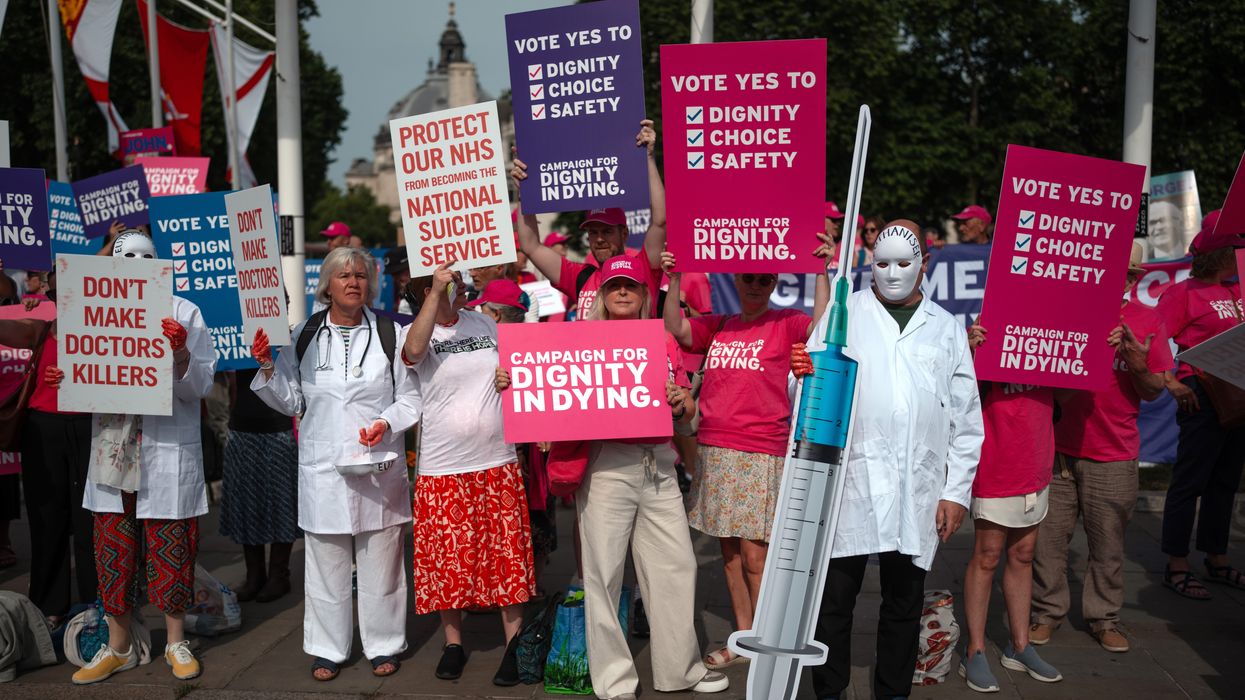UK MPs are set to hold a key vote on assisted dying on Friday, which could either advance or halt a proposed law that would allow terminally ill adults to end their lives under strict conditions.
The vote follows several hours of debate in the House of Commons and will decide whether the Terminally Ill Adults (End of Life) Bill moves to the House of Lords for further scrutiny or is dropped altogether.
As MPs gather for the third reading — their final opportunity to debate the bill’s content — demonstrators from both sides of the issue are expected outside parliament.
“This is about real people facing the prospect of a painful and undignified death either for themselves or a loved one,” said MP Kim Leadbeater, who is leading the bill. “The injustice and inhumanity of the status quo means we cannot wait any longer to offer them the hope of a better death.”
ALSO READ: Faith leaders raise concerns over assisted dying bill’s impact on women
Conditions under the bill
The legislation would apply to adults in England and Wales with an incurable illness and fewer than six months to live.
It would require patients to administer the life-ending medication themselves, with approval needed from two doctors and a panel of experts.
If passed, the law would bring England and Wales in line with other countries that permit some form of assisted dying.
Concerns and changes
Supporters of the bill say it would offer more protection and choice to people nearing the end of life. Opponents argue it could put pressure on vulnerable individuals.
The Royal College of Psychiatrists has raised concerns, stating last month that it had “serious concerns” about safeguarding people with mental illness, and said it could not support the bill in its current form.
MPs initially backed the bill by 330 votes to 275 in November. Since then, changes have been made, including a ban on advertising assisted dying and provisions allowing health workers to opt out of taking part.
The current vote comes as several MPs have shifted their stance, and political parties are allowing a free vote. The outcome remains uncertain.
Vote tally and next steps
An ITV News tally of about half of all MPs suggests 153 support the change, 141 are opposed, 21 remain undecided and another 21 are expected to abstain.
Both the House of Commons and the House of Lords must pass the bill before the end of the current parliamentary year, likely in the autumn, for it to become law.
If approved and granted royal assent, assisted dying services would not begin for at least four years.
Legal and regional developments
The government’s impact assessment, published this month, estimates that 160 to 640 assisted deaths could occur in the first year of implementation, rising to about 4,500 by the tenth year.
Prime minister Keir Starmer is expected to support the bill, but some cabinet members, including the health and justice secretaries, have spoken against it.
Assisted suicide is currently punishable by up to 14 years in prison in England, Wales and Northern Ireland.
Separate legislation is being considered in Scotland, and the Isle of Man passed an assisted dying bill in March, becoming the first British territory to do so.
(With inputs from agencies)





